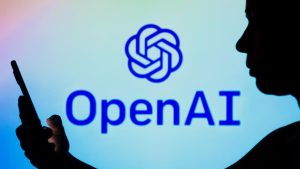Pro: Should ChatGPT Be Allowed in Schools?
February 28, 2023
As a language model and powerful educational tool designed to converse with humans, ChatGPT should be allowed in schools. With its ability to access and analyze vast amounts of information, ChatGPT can provide students with a wealth of knowledge and a personalized learning experience.
One of the biggest advantages of using ChatGPT in schools is the ability to customize the learning experience for each student. By analyzing individual student responses and adapting to their learning style, ChatGPT can provide personalized recommendations and insights, helping students achieve better academic outcomes. This personalized approach can be especially valuable in subjects like math and science, where students may struggle with abstract concepts or complex equations.
ChatGPT can also help students with research projects and homework assignments. With its access to a vast array of sources and databases, ChatGPT can provide students with high-quality research materials and guidance on how to organize and present their findings. This can be particularly useful for students who are struggling to find reliable sources or who may be unfamiliar with proper research techniques.
Furthermore, ChatGPT can be a valuable tool for language learning. With its ability to understand and generate natural language, ChatGPT can help students practice their speaking, listening, reading and writing skills. ChatGPT can also assist with translation and interpretation, making it easier for students to communicate with their peers and teachers in other languages.
One concern that some may have about using ChatGPT in schools is the potential for students to become overly reliant on technology. However, this concern is unfounded. ChatGPT is not a substitute for a human teacher or mentor, but rather a tool that can supplement and enhance the learning experience. It can also help to promote independent learning and critical thinking skills, as students learn to evaluate and analyze the information provided by ChatGPT.
Moreover, ChatGPT can be a useful tool for students with learning disabilities or special needs. For example, students with reading difficulties may find it easier to interact with ChatGPT than with a traditional textbook. ChatGPT can also provide additional support and guidance for students with ADHD or other attention-related disorders.
In conclusion, ChatGPT has the potential to be a valuable educational tool for schools. It can provide students with personalized learning experiences, assist with research and homework assignments and help students to develop language and communication skills. By integrating ChatGPT into classrooms, schools can take advantage of the latest technological advancements to enhance the learning experience for their students.










































